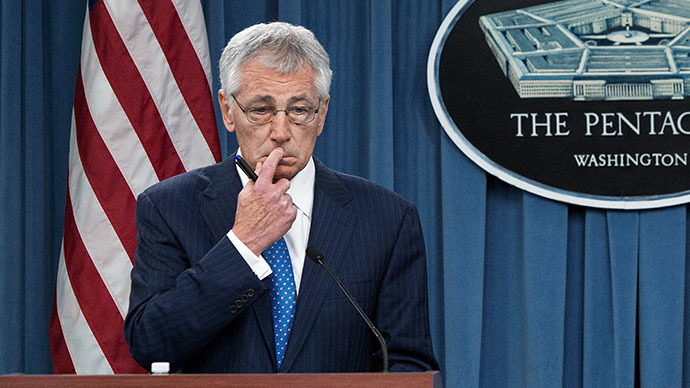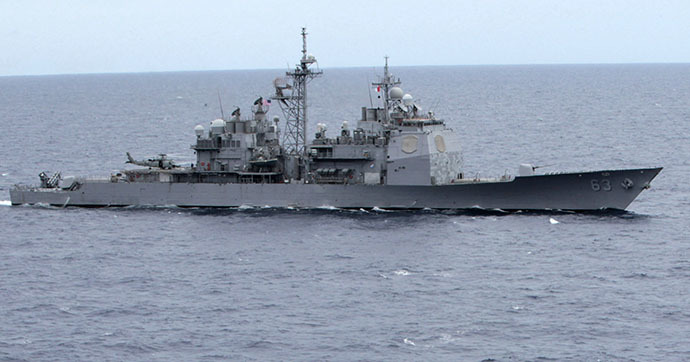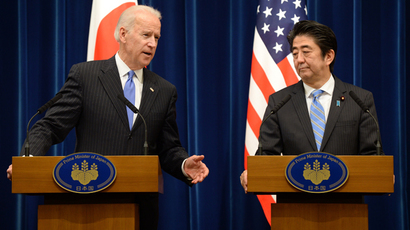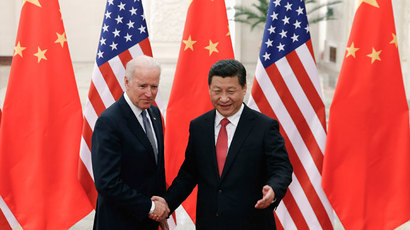US accuses China of acting ‘irresponsible’ in stand-off at sea

U.S. Defense Secretary Chuck Hagel called China’s behavior during recent stand-off with an American warship “irresponsible” at a press conference on Thursday.
In early December, Chinese warships confronted the USS Cowpens guided missile warship in the South China Sea after it was reportedly conducting surveillance on Beijing’s new aircraft carrier, the Liaoning.
According to U.S. officials, the Chinese ordered the Cowpens to stop in its tracks, but the Navy refused because it was operating in international waters. The Chinese ship then attempted to cut off the Cowpens' path by stopping in front of it, forcing the Navy to take evasive maneuvers in order to avoid a collision.
"That action by the Chinese, cutting in front ...100 yards out in front of the Cowpens, was not a responsible action," Hagel said, according to Agence France-Presse. "It was unhelpful, it was irresponsible."

Hagel added that the incident demonstrated the need for the United States and China to work together on establishing clear communications protocols in Pacific waters.
"That's the kind of thing that's very incendiary, that could be a trigger or a spark that could set off some eventual miscalculation," he told the conference. Both counties need "to have a mechanism to be able to defuse some of these issues as they occur,” he added.
For its part, China seems to believe the United States is overreacting. Previous statements from Beijing claim its vessels did nothing out of the ordinary, while Chinese media called out the Cowpens as a “threat.”
"During the encounter, the Chinese naval vessel strictly followed protocol and handled (the incident) appropriately," said a statement by the Chinese defense ministry, according to AFP.
Still, General Martin Dempsey, the chairman of the U.S. Joint Chiefs of Staff, followed Hagel and stated that American and Chinese officials are currently drafting rules of engagement for the two countries to follow in the event of another encounter. The rules would cover meetings at sea, in the air, and in cyberspace, and Dempsey said the two nations are “making some progress.”
Tensions in East Asia have spiked ever since China declared a new air defense identification zone (ADIZ) that encompasses islands claimed by both Japan and Beijing. The U.S. does not take a stand on the dispute over the land – known as “Senkaku” in Japan and “Daioyu” in China – but it does recognize Japan’s right to administer the islands.
In response to the ADIZ declaration, America and its allies have refused to recognize China’s new zone, with the U.S. flying two B-52 bombers through the area without notifying Beijing. For safety reasons, the U.S. has advised domestic airlines to comply with China’s new rules.
South Korea has also moved to establish a new ADIZ in response to China, including the disputed Ieodo rock formation (known as “Suyan” in China) within its reach. Beijing is concerned the United States and its allies are following a strategy of containment regarding its rise as a global power, though American officials, including President Obama, have denied the claim.














